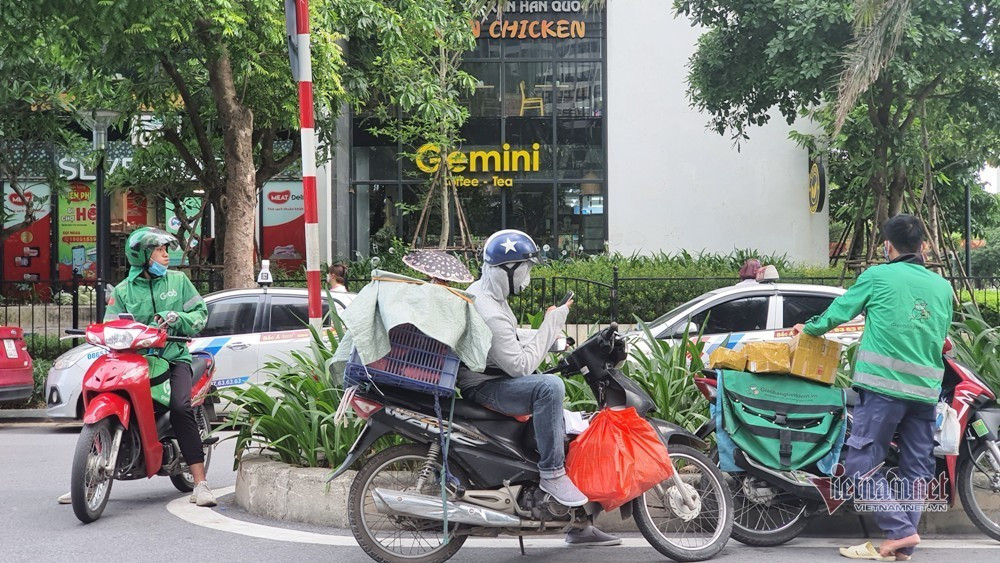It’s time to institutionalize mandatory regulations requiring companies and organizations-especially technology platforms-to sign employment contracts, even flexible ones, with workers who are engaged on a regular, long-term basis.
I recently met Nam, a former college student who majored in accounting. After four years since graduation, Nam looked thinner, his skin darker-no longer the bookish student I once knew.
Nam recounted the past few years spent hustling across Hanoi, doing everything from waiting tables at cafés and bars to working in local eateries. The longest job he’s held is as a motorbike driver for a ride-hailing platform.
The income from his work with Grab has been just enough to cover rent, food, and send a bit back home. However, after falling seriously ill, Nam’s deteriorating health has made it difficult for him to work consistently. On hot days, he stays home to rest, which means no income. To cover rent, medicine, and daily expenses, he’s had to borrow from friends and acquaintances.
Because he’s a freelance worker, Nam has no health insurance. When unemployed, he lacks the unemployment benefits afforded to those with formal employment contracts and social insurance.
Nam once had an offer for a formal job with a probationary salary of VND 6 million (around USD 236), but the income was lower than what he earned from Grab. So he chose the harder job for better pay. Now, he deeply feels the precariousness of life as a gig worker.
“Freelancers don’t participate in social insurance, health insurance, or unemployment insurance. So when they fall ill or lose their jobs, there’s no safety net,” Nam shared.
His story is far from rare. Cities like Hanoi, Ho Chi Minh City, and other major urban areas are home to countless freelance workers-those without contracts, benefits, or support when they fall ill or become jobless.
According to the General Statistics Office, as of 2024, Vietnam had around 33 million freelance workers-over 65% of the total 52 million labor force. Alarmingly, 43.9% of informal workers fall into the category of “vulnerable employment.” Most of them-97.9%-lack social insurance, which also means no health or unemployment coverage.
This reality makes clear the urgent need for a more flexible and inclusive social protection system.
Protecting freelancers through legal frameworks

Vietnam’s labor market is rapidly shifting toward flexibility and digitization. An increasing number of people are working via digital platforms or in short-term, part-time arrangements, with no legal ties to employers.
The absence of labor contracts means they are excluded from critical policies like social insurance, health insurance, and unemployment benefits-pillars of the social safety net.
It is therefore urgent to enforce regulations requiring companies-especially tech platforms-to sign employment contracts with long-term, frequent workers. Even flexible contracts would provide a legal basis for social insurance, creating clearer rights and obligations for both parties, and better protecting workers’ interests.
Vietnamese labor law does not prohibit flexible contracts. What’s needed is a strong legal framework ensuring no one is left behind during the digital transformation and the expansion of the platform economy, where workers are increasingly central to growth.
Vietnam can look to developed nations such as France, Germany, and Sweden, which have implemented unemployment insurance models covering freelancers. Germany, for instance, operates a two-tier unemployment system that supports both formal and freelance workers.
The first tier (ALG I) covers those with at least 12 months of insurance contributions in the past 30 months. Benefits range from 60–67% of net income, lasting from 6 to 24 months based on age and employment history.
The second tier (Bürgergeld, formerly ALG II) provides basic support to long-term unemployed or those ineligible for ALG I, including freelancers. This program ensures a minimum living standard and supports reintegration into the labor market.
Vietnam’s recently amended Employment Law has taken steps in this direction, significantly expanding unemployment insurance coverage to include freelance and flexible workers-groups that are growing in the digital economy.
Under the new law, workers with fixed-term contracts of at least one month (down from the previous threshold of three months), as well as part-time workers earning equal to or above the minimum base for social insurance contributions, are now eligible for unemployment insurance. This aligns with the 2024 Social Insurance Law and gradually broadens the social safety net.
To put these laws into practice, companies and organizations that regularly engage freelance workers must be required to sign at least flexible employment contracts and fulfill obligations to contribute to social and unemployment insurance-just as they do for formal employees. This is a critical step in preventing legal loopholes and ensuring equal rights for workers in an increasingly non-traditional labor market.
Vu Diep